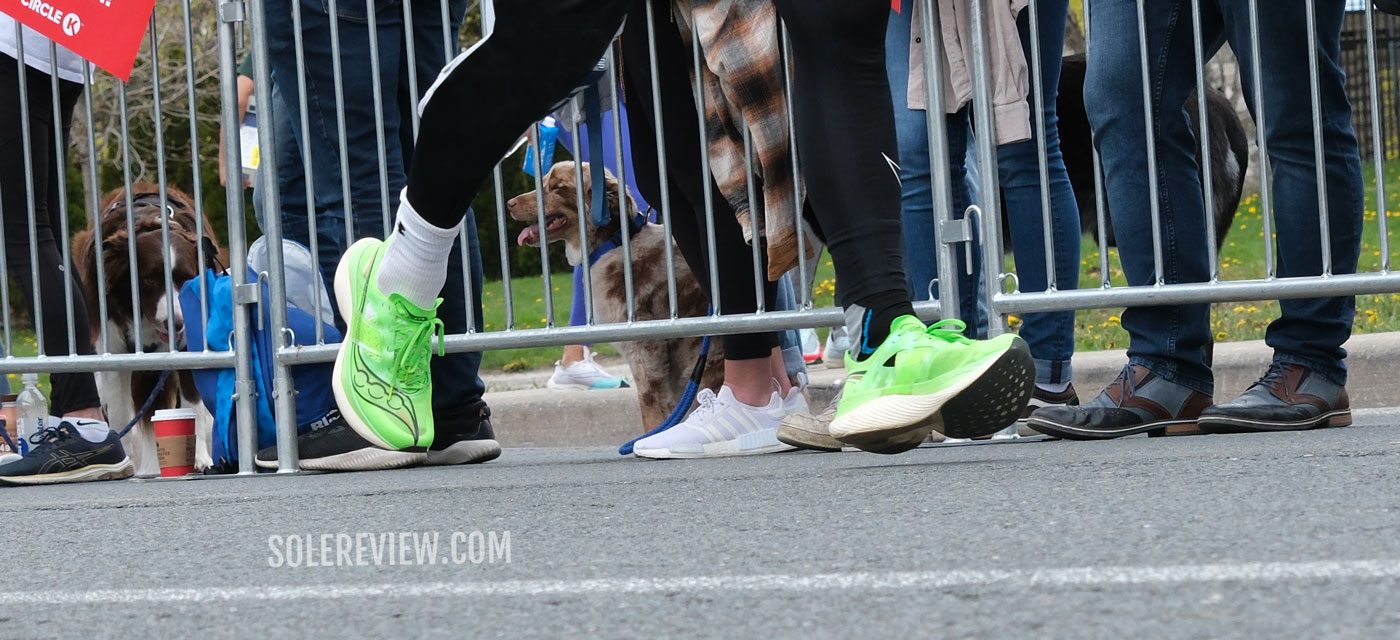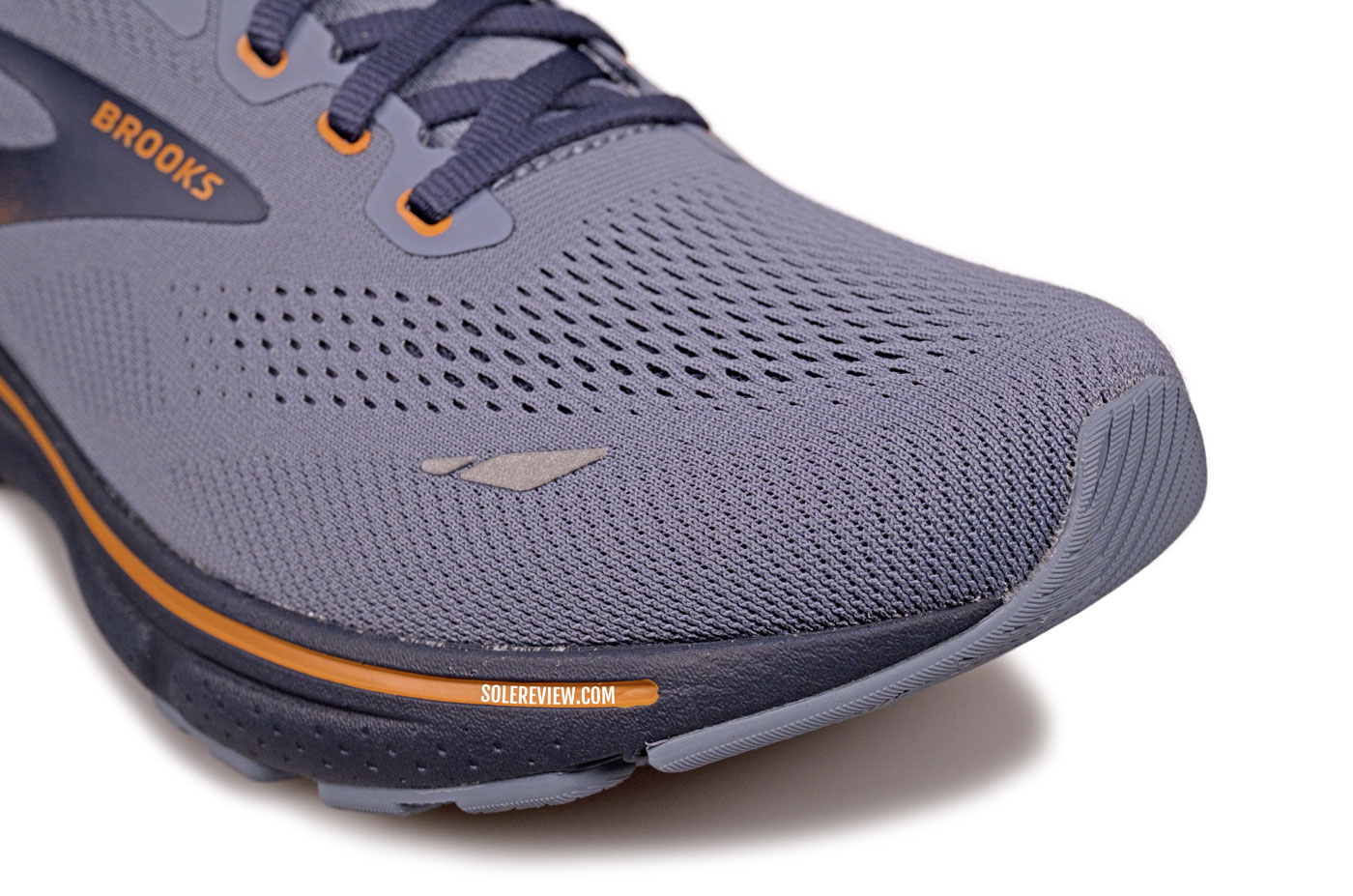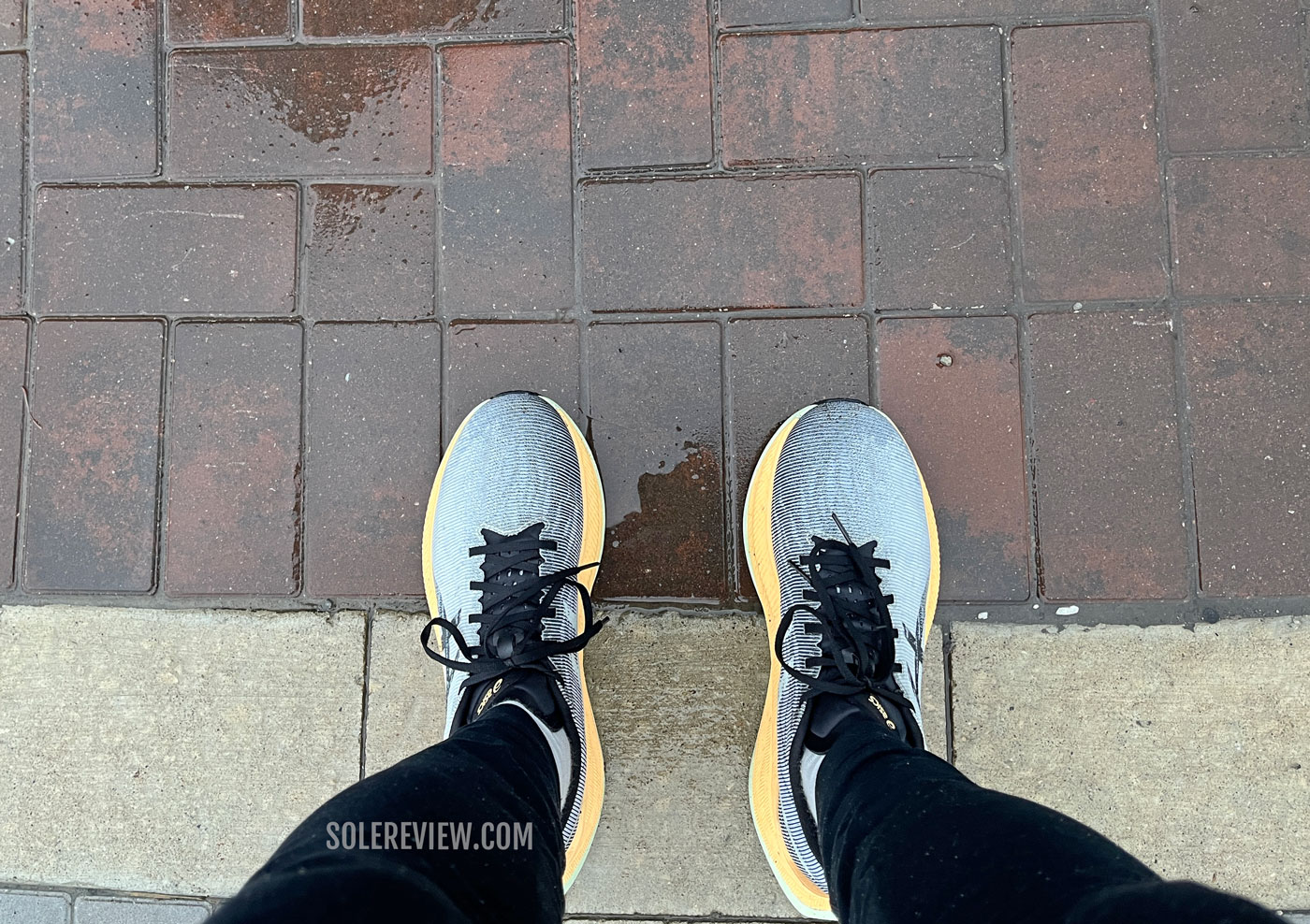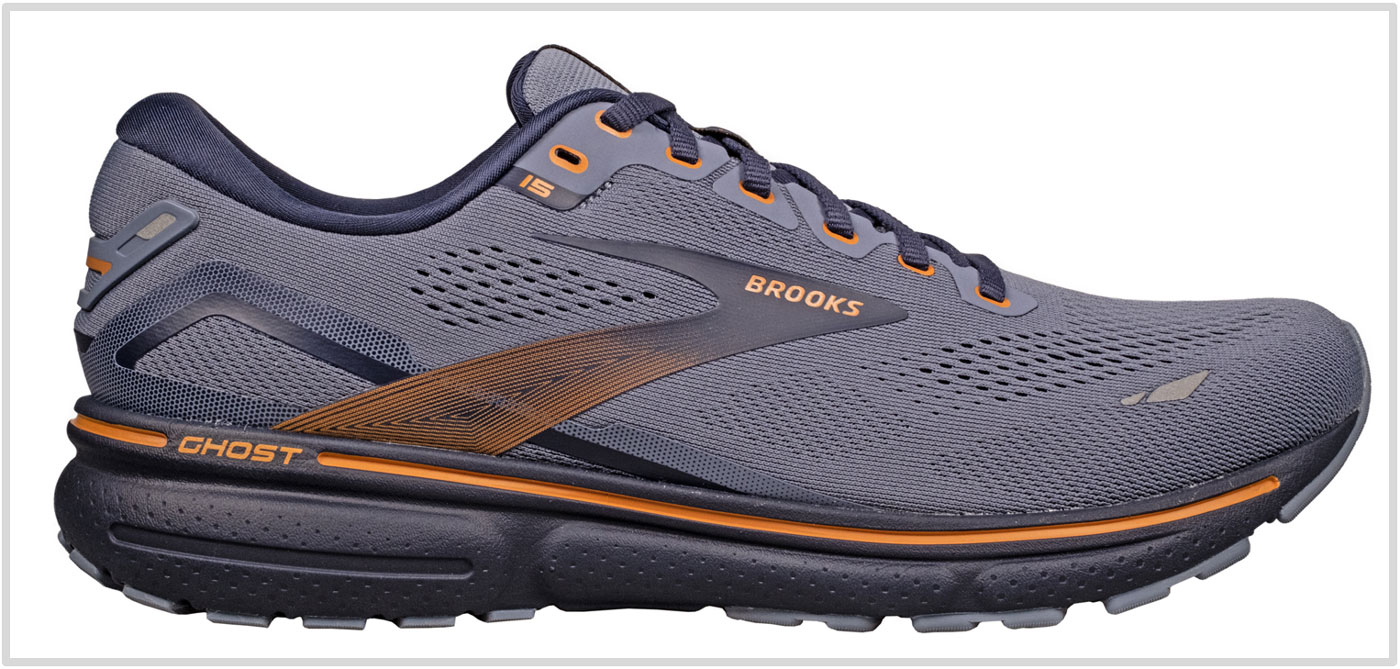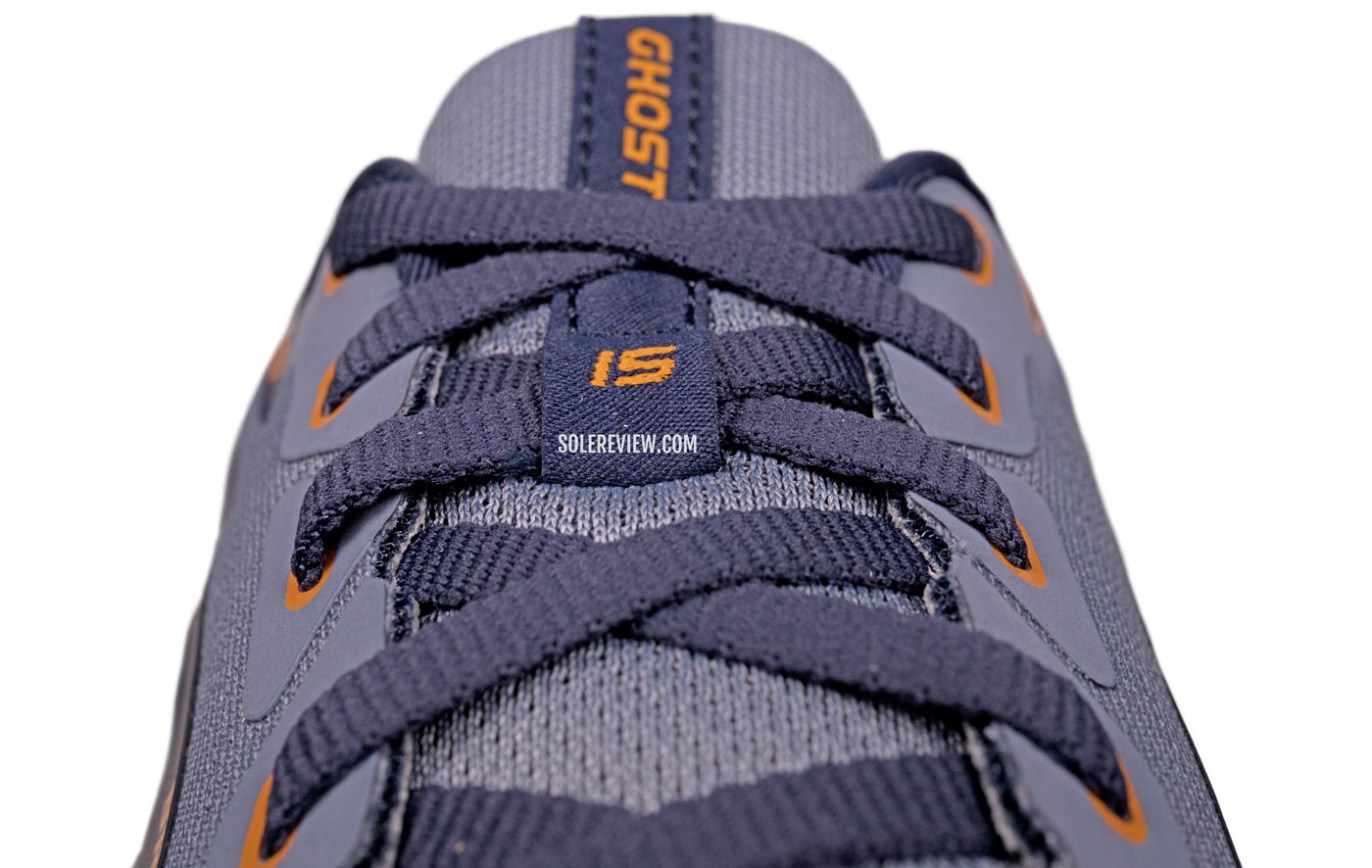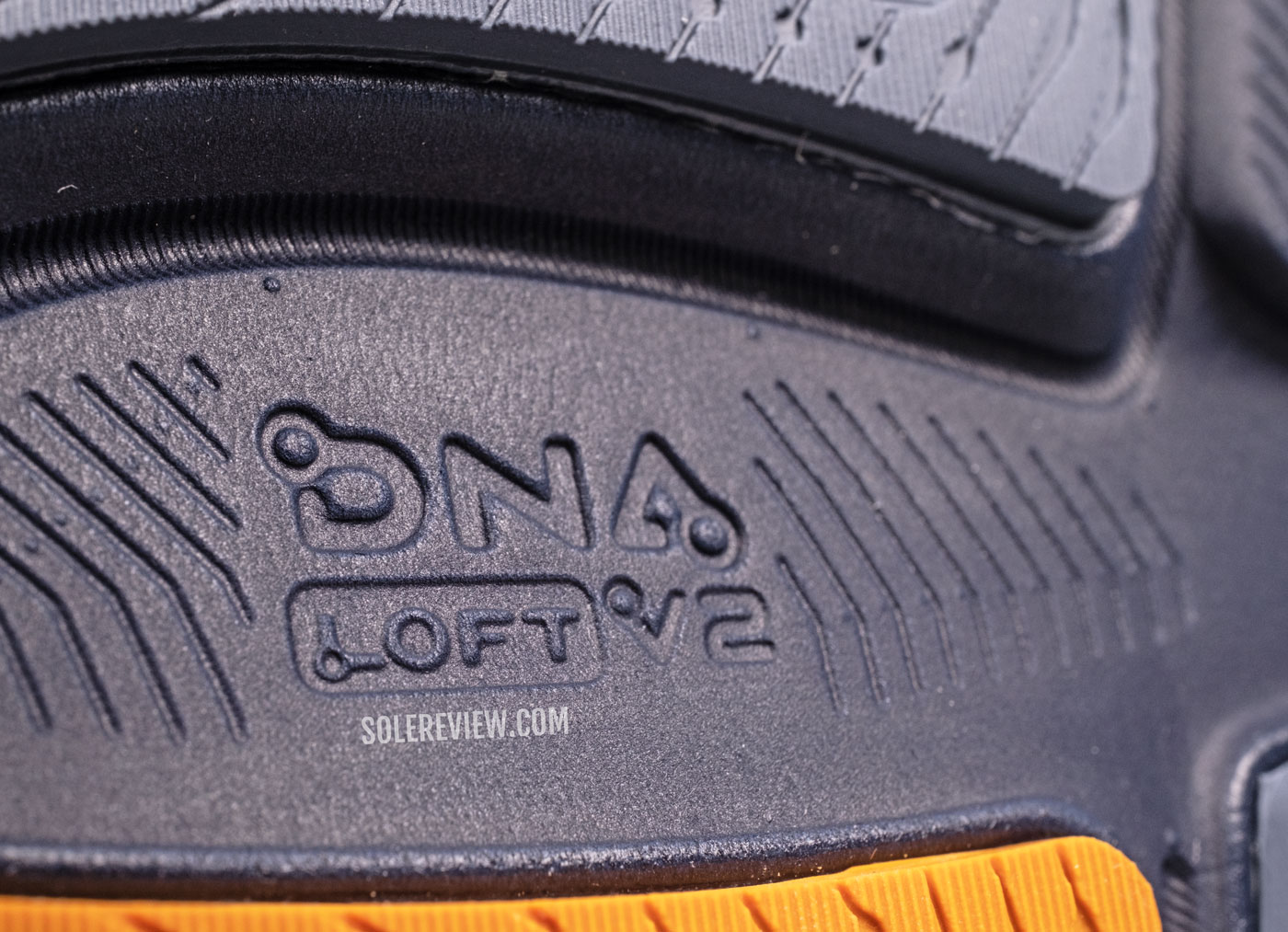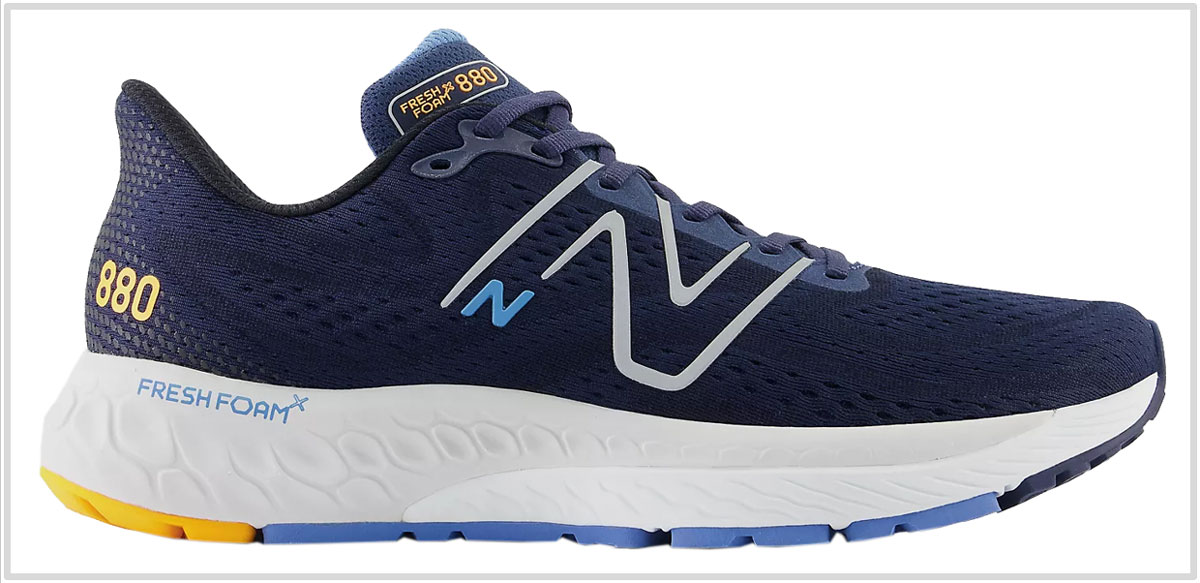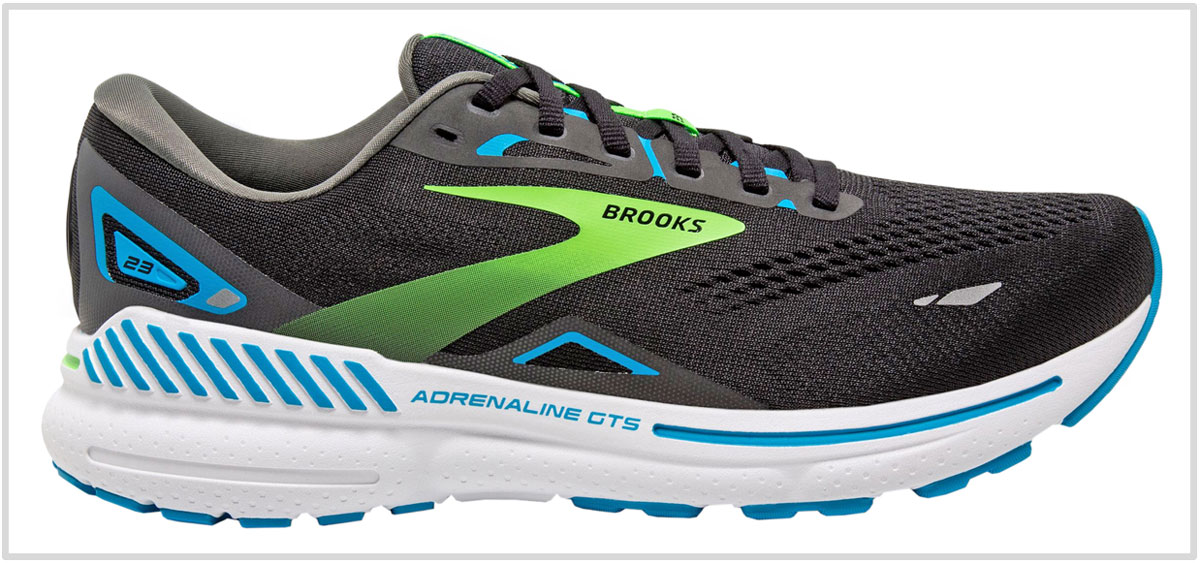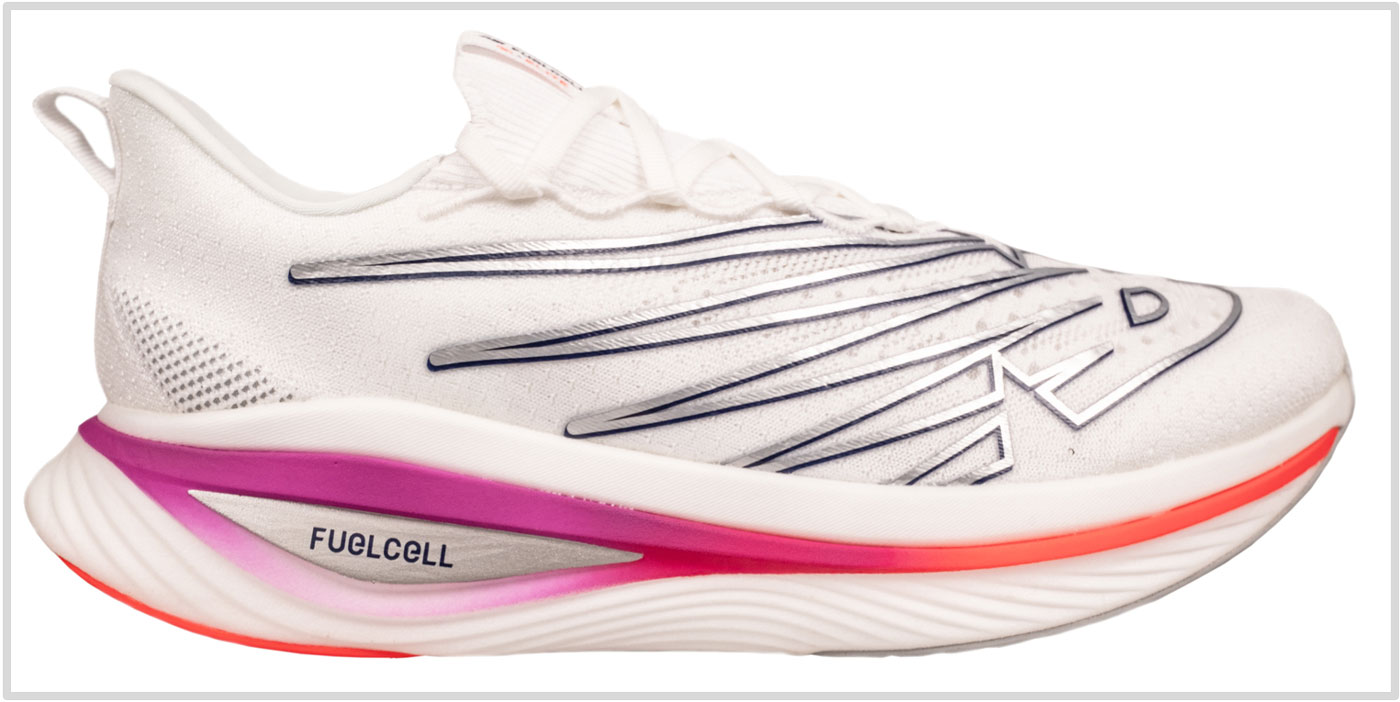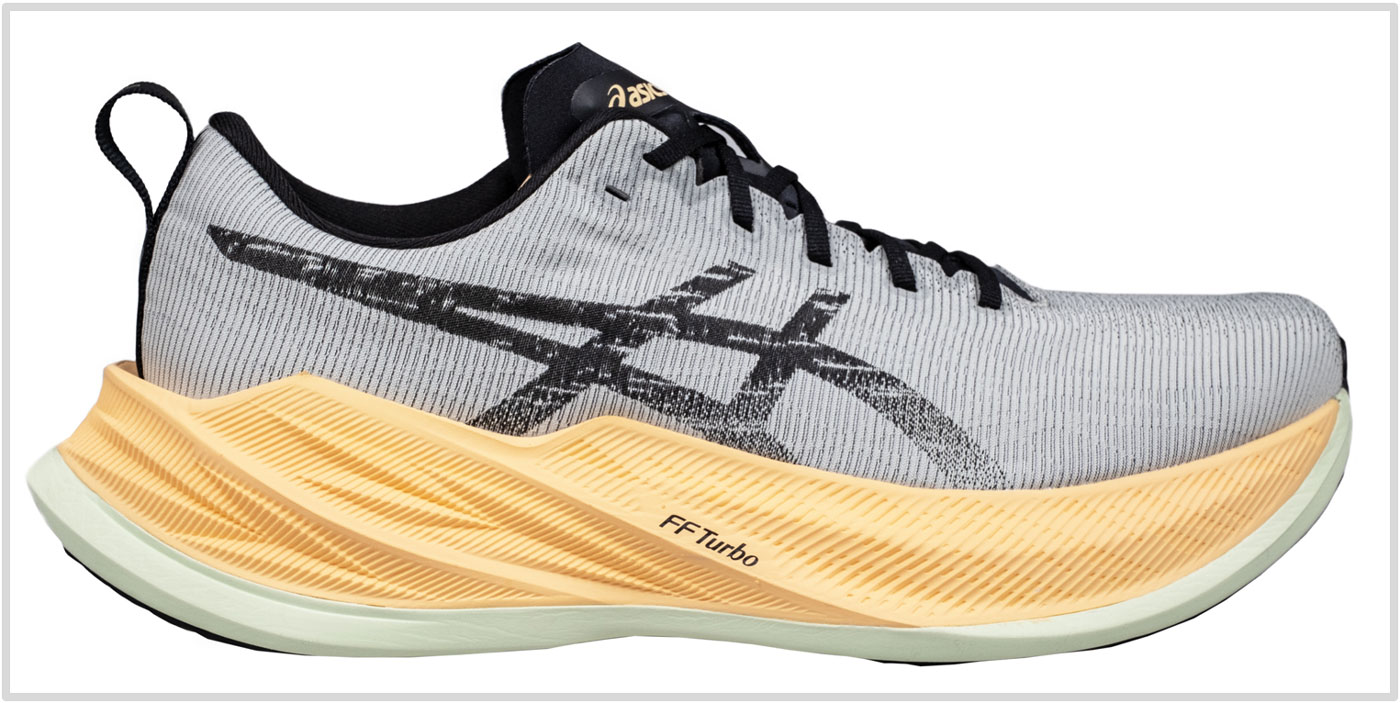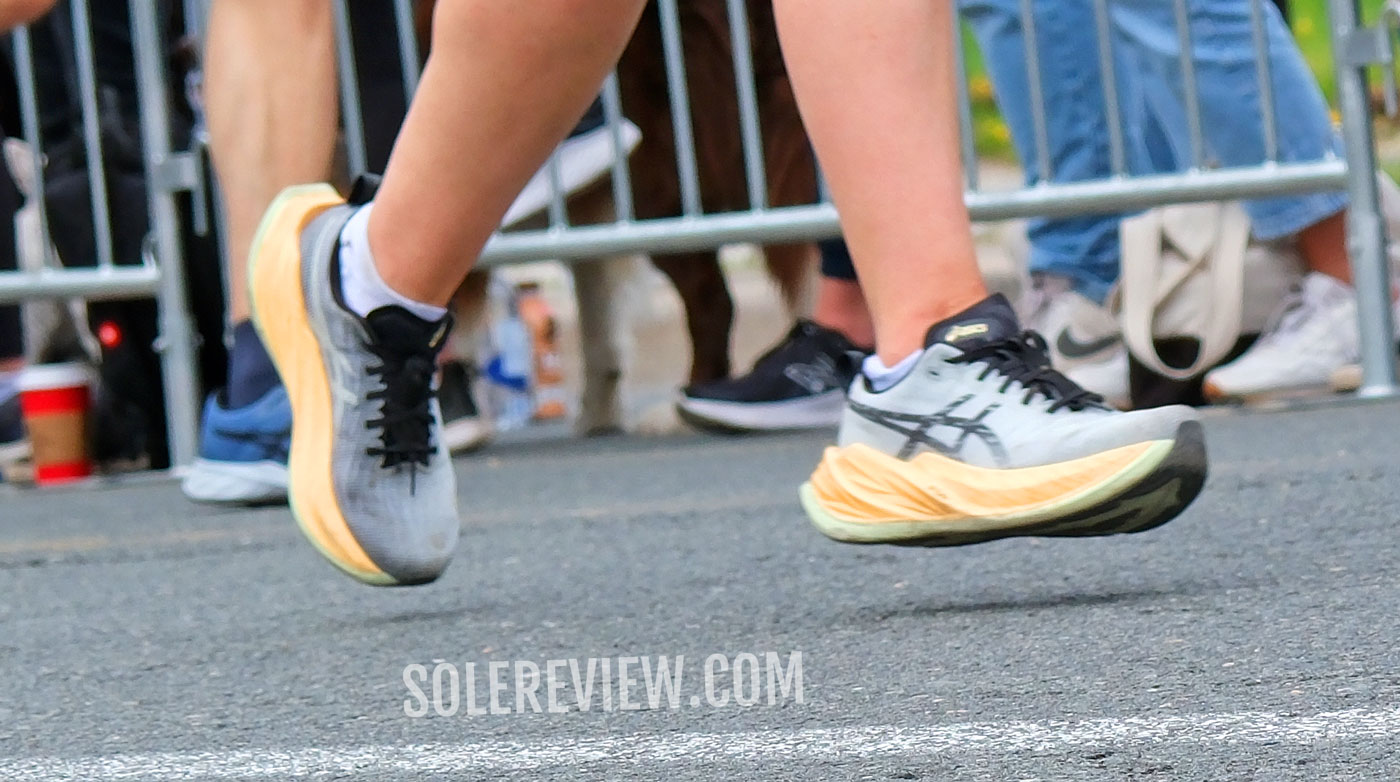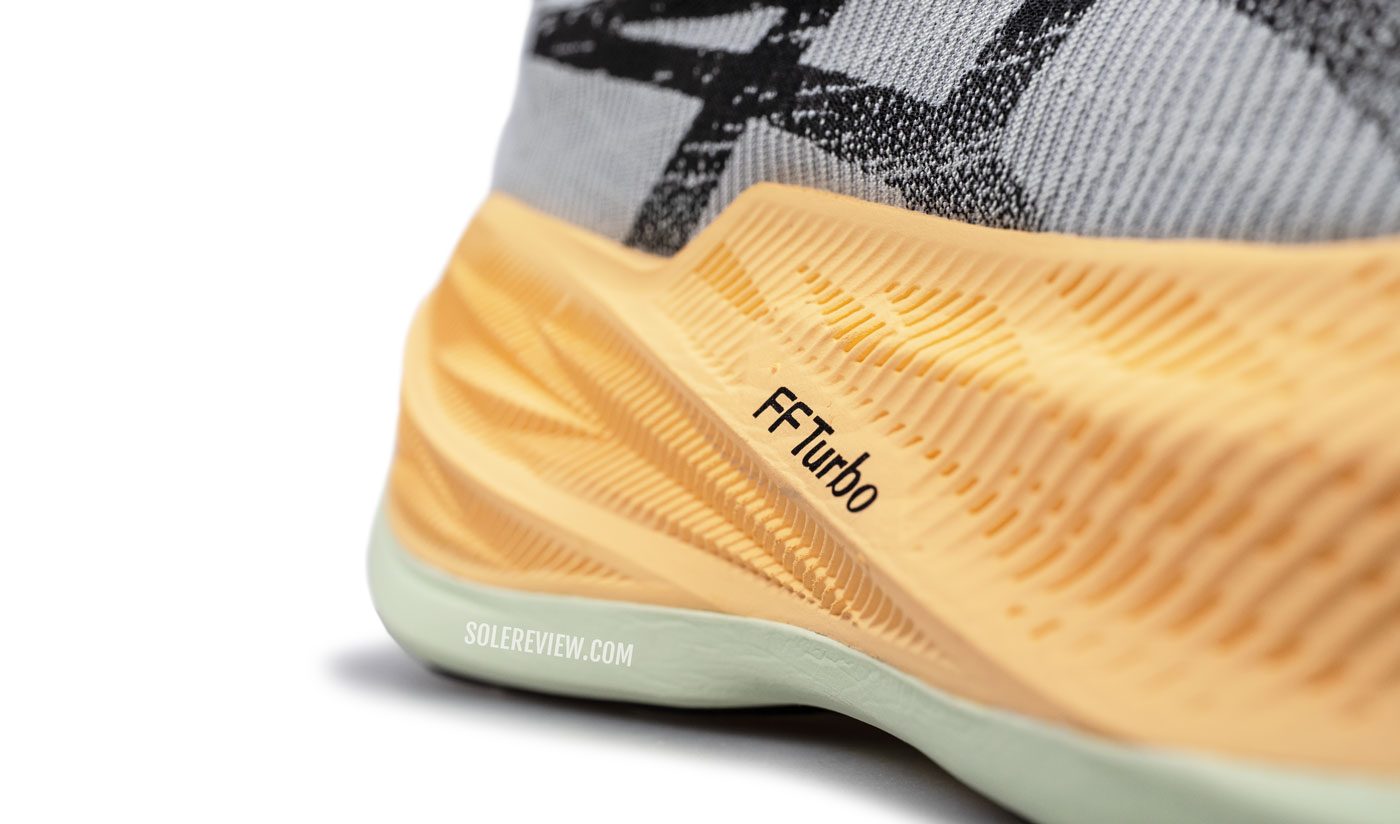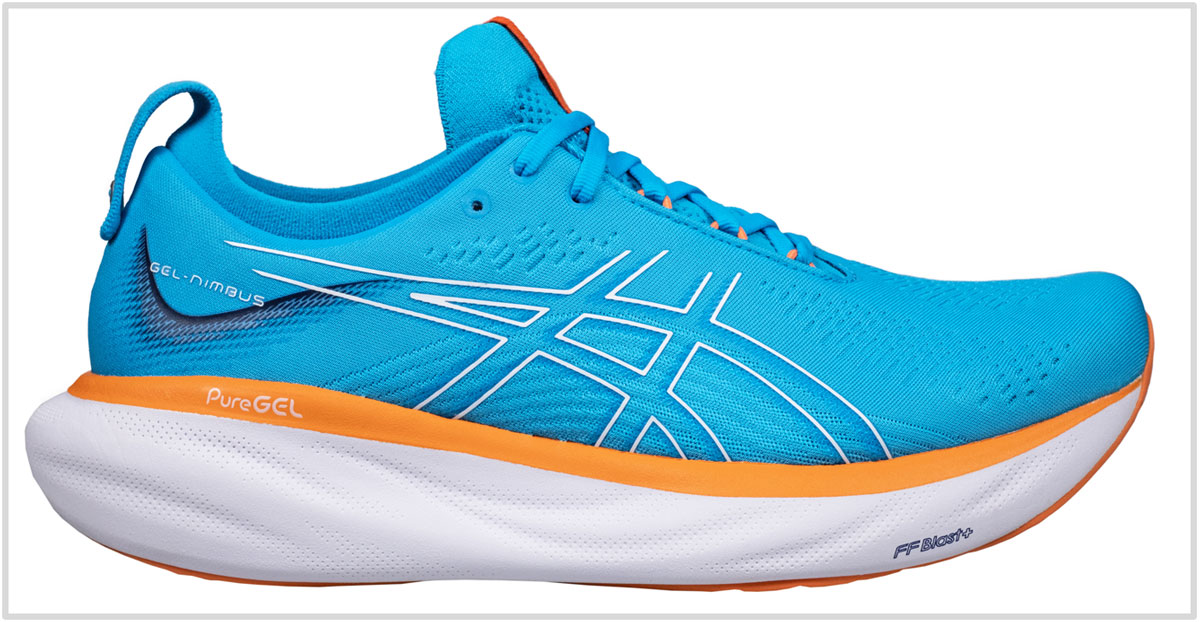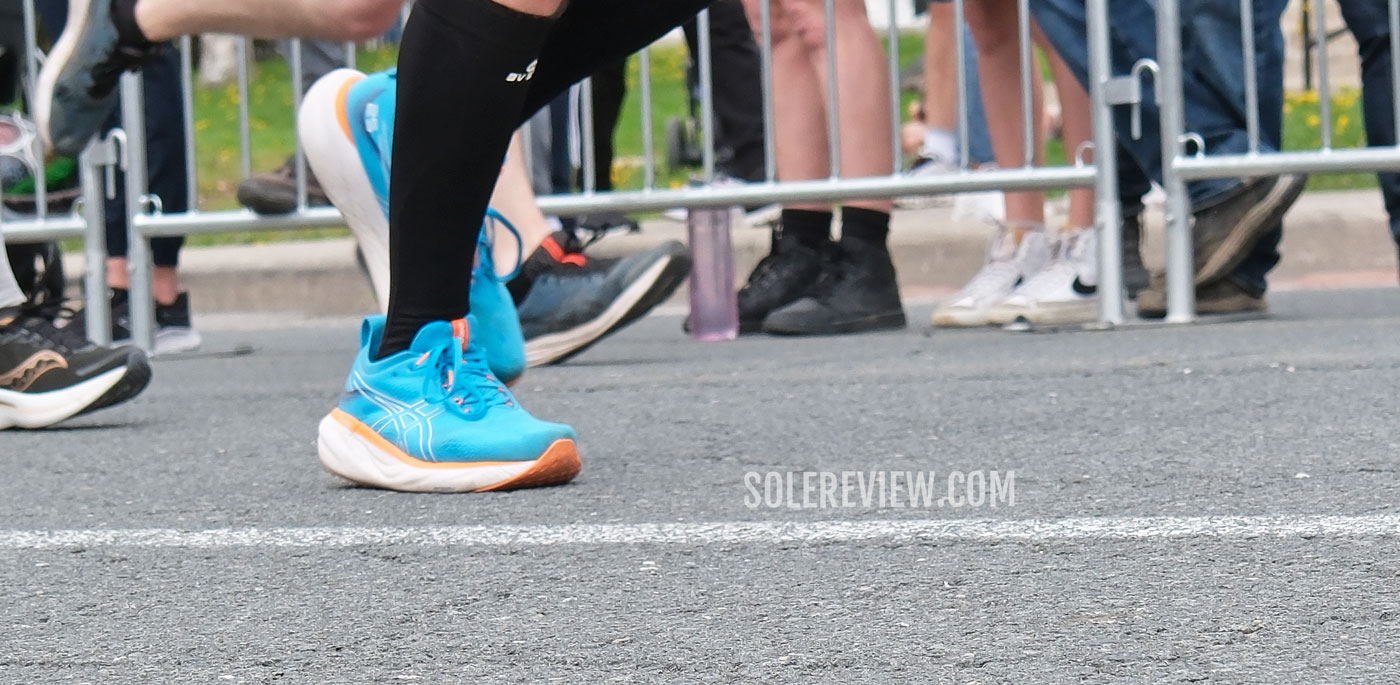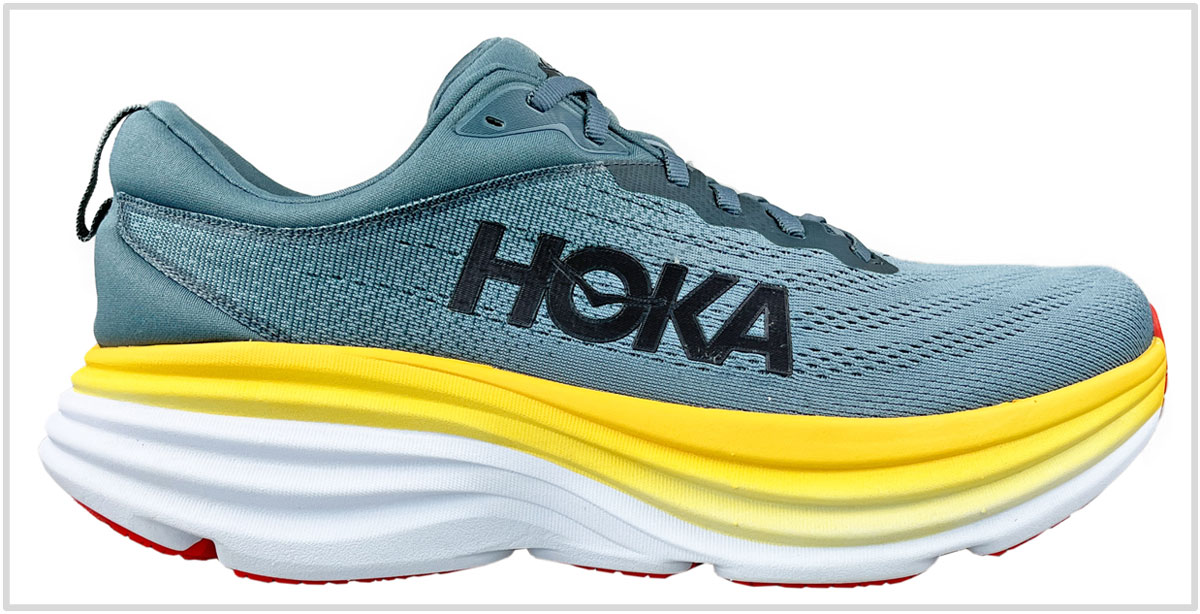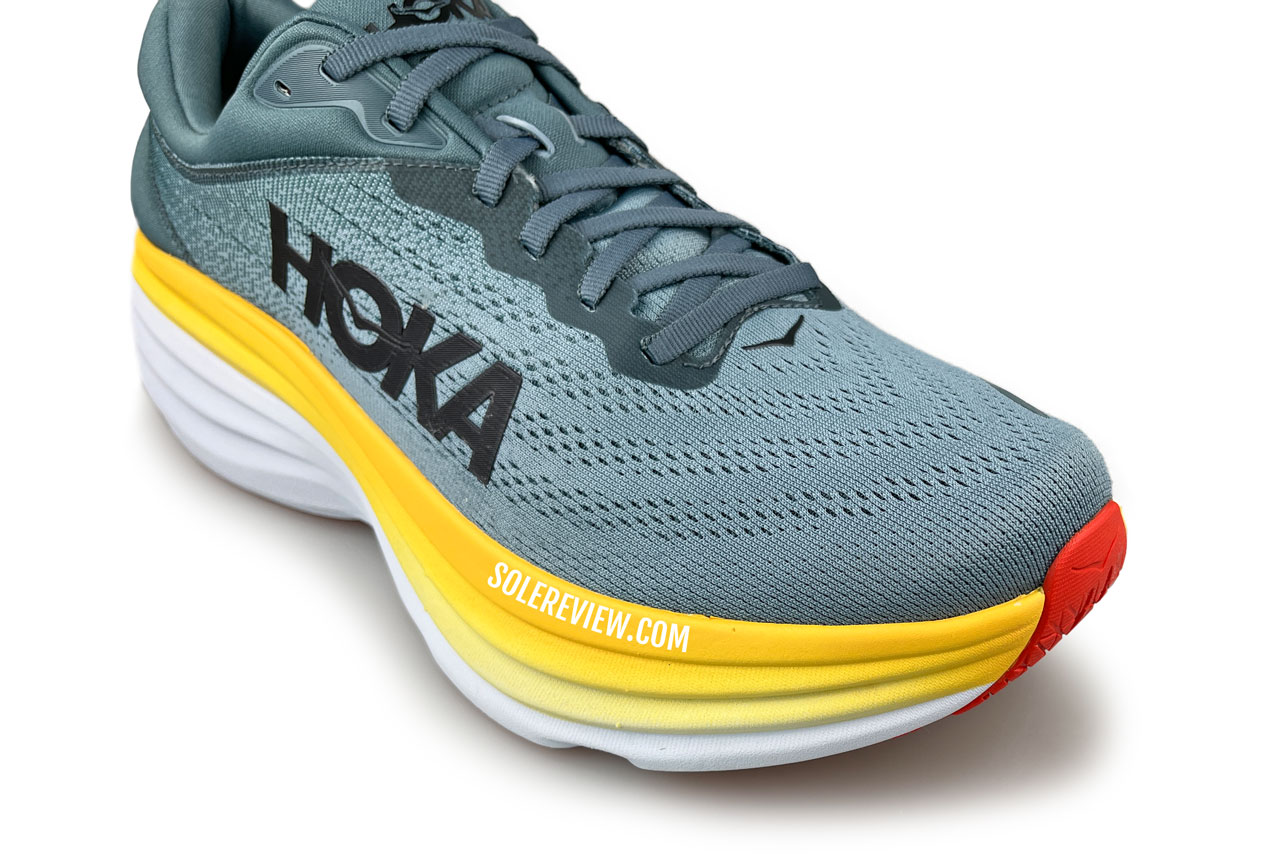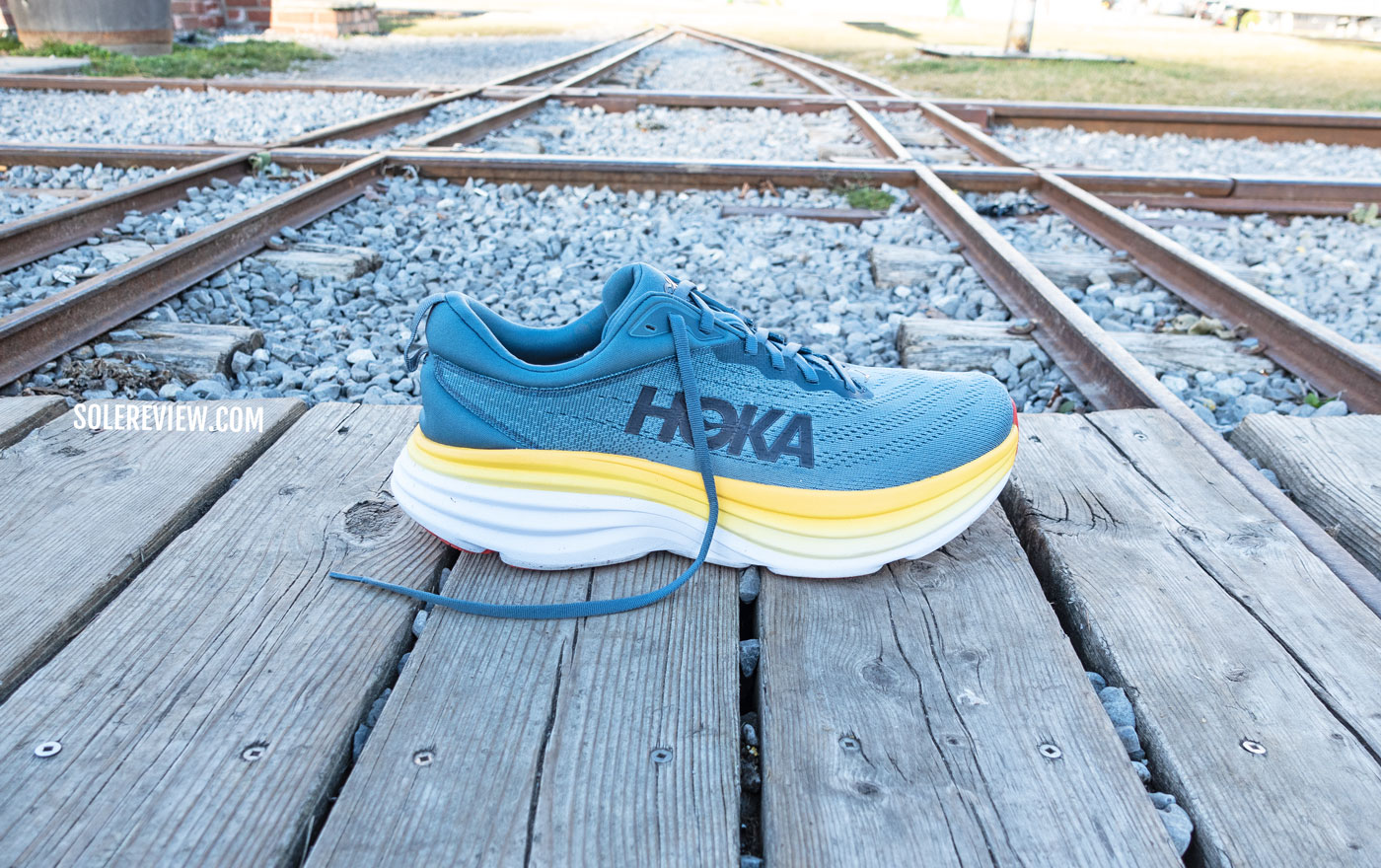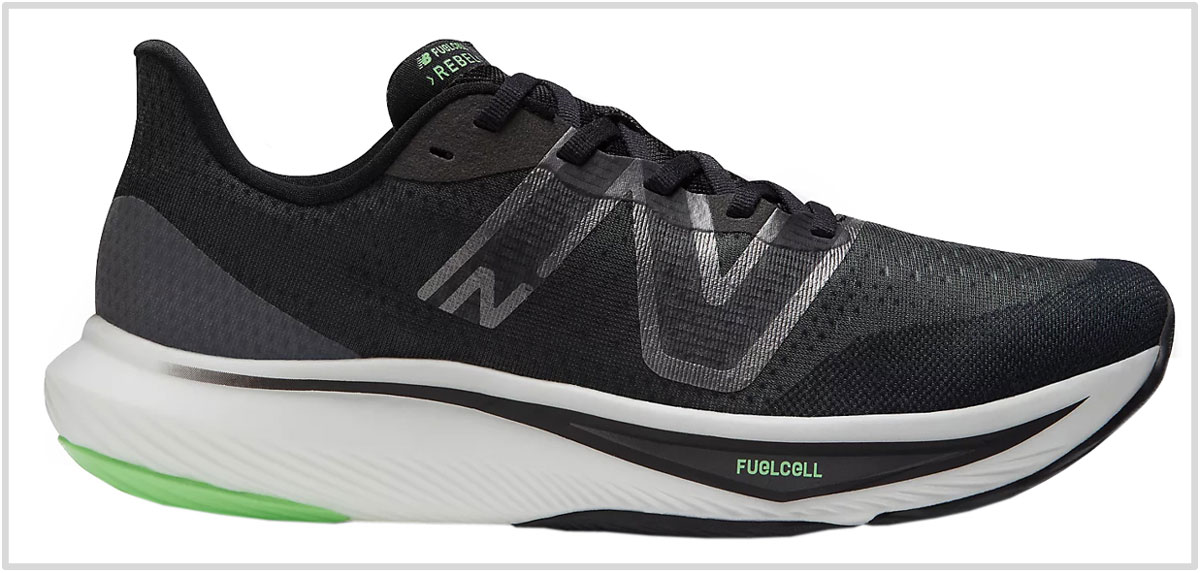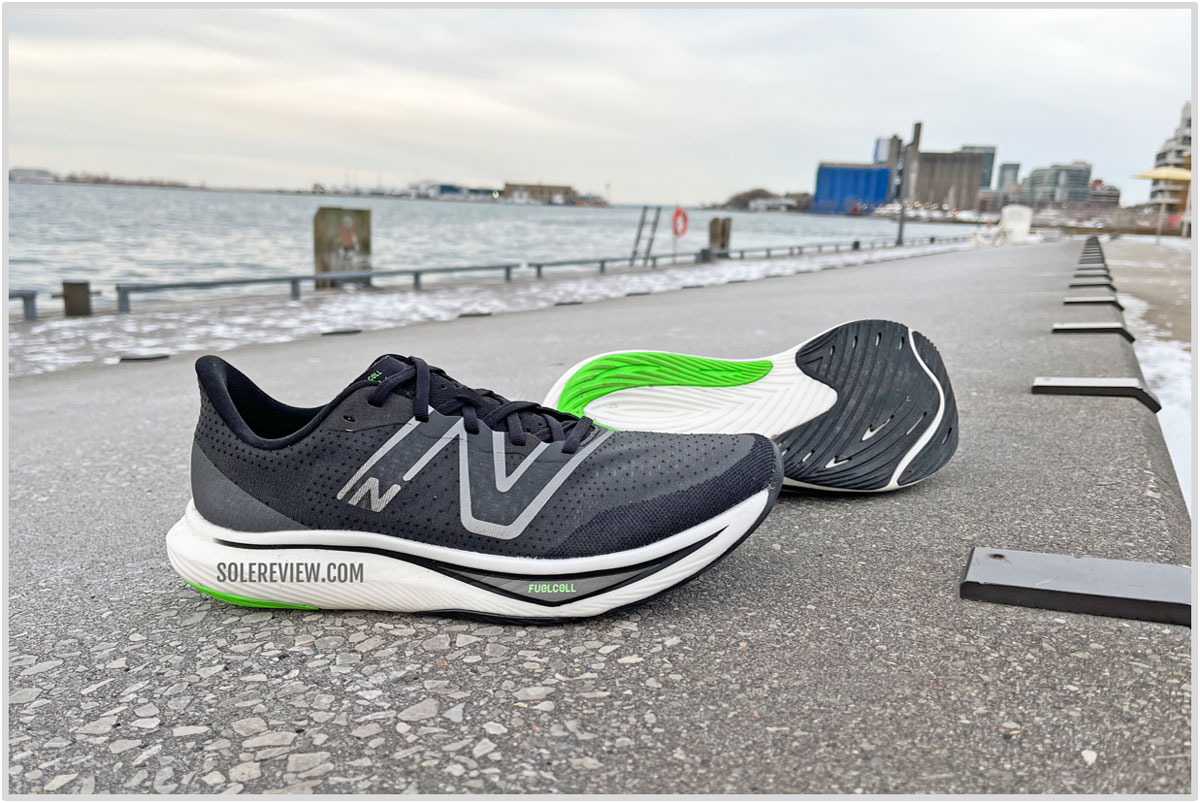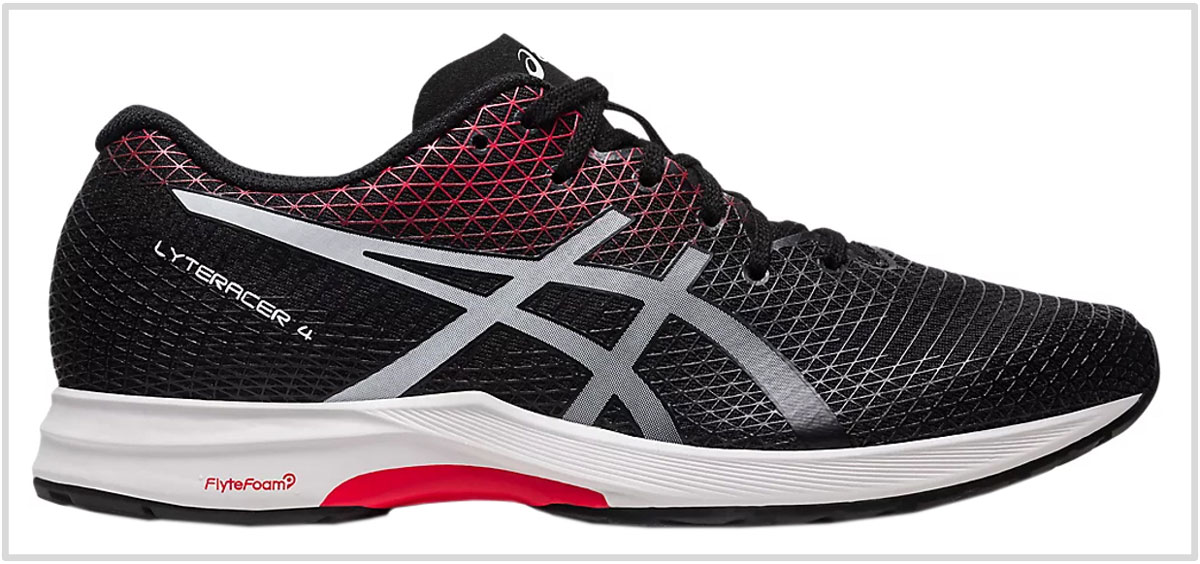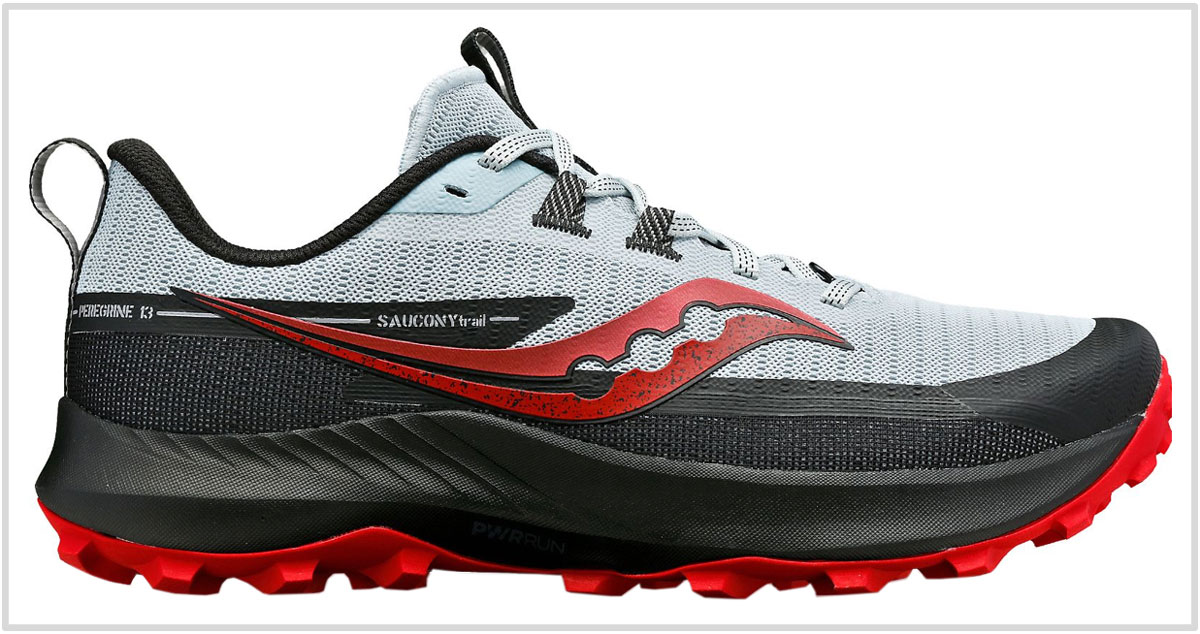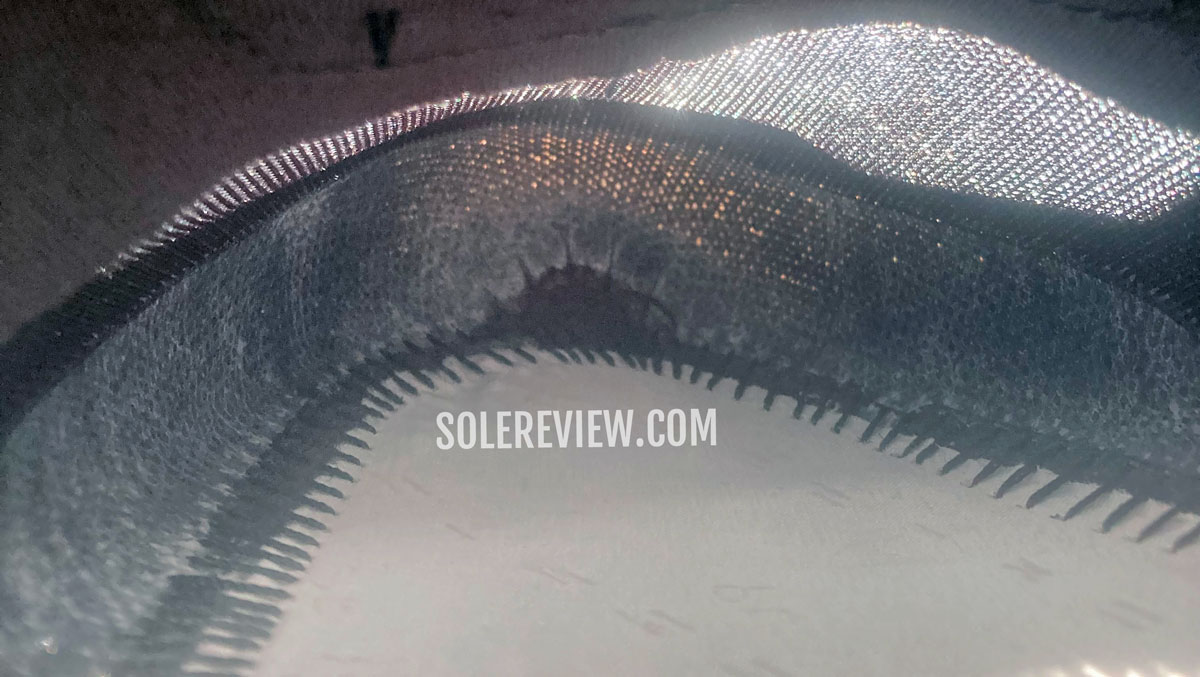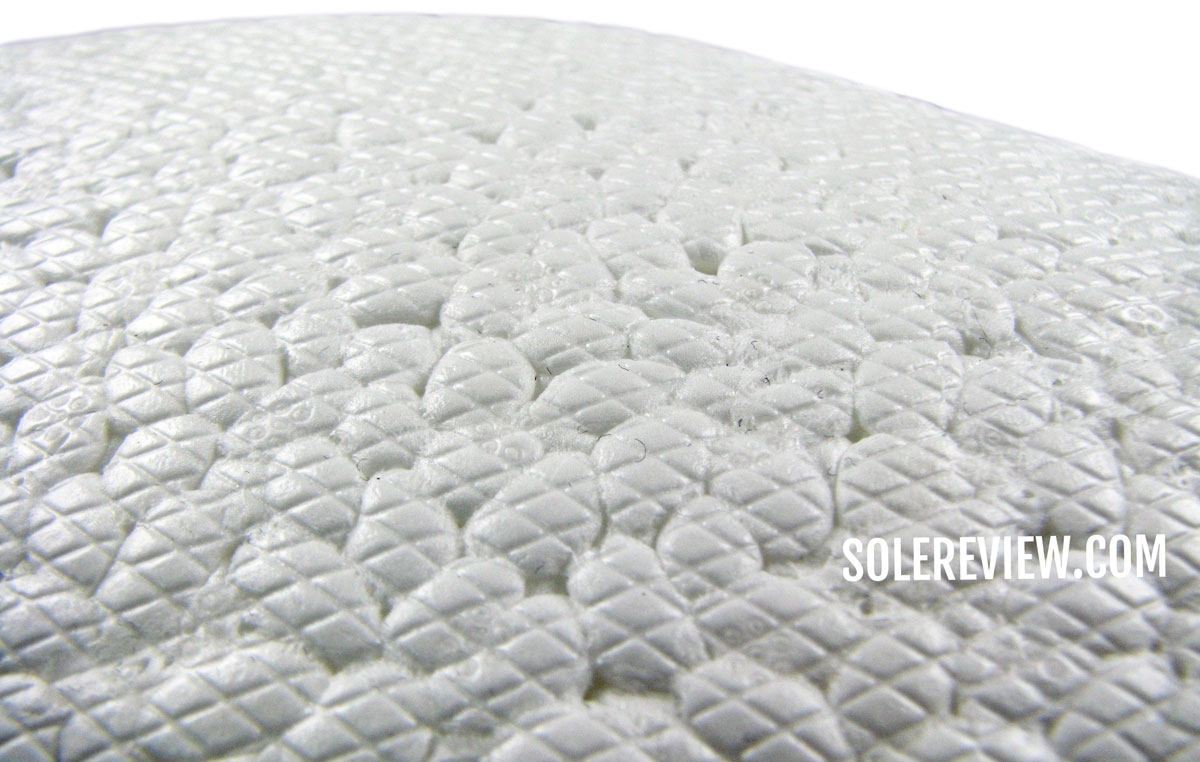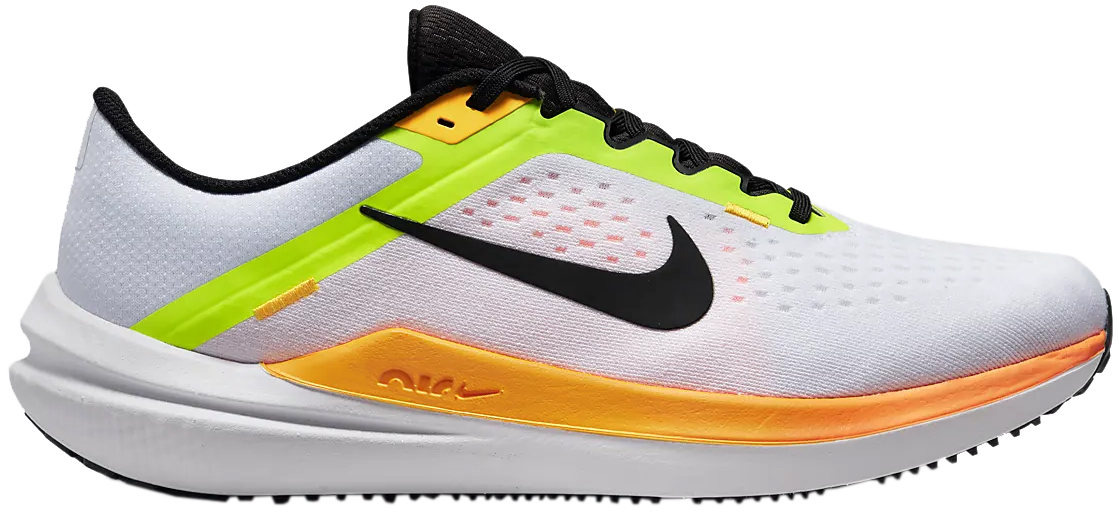In this product guide:
- 1. Factors to consider
- 2. Best daily trainer for narrow feet: Brooks Ghost 15
- 3. Best daily trainer for narrow feet: New Balance 880V13
- 4. Best stability shoe for narrow feet: Brooks Adrenaline GTS 23
- 5. Best marathon shoe for narrow feet: New Balance SC Elite V3
- 6. Best marathon shoe for narrow feet: Asics Superblast
- 7. Best long-distance cruiser for narrow feet: Asics Nimbus 25
- 8. Best long-distance cruiser for narrow feet: Hoka Bondi 8
- 9. Best tempo trainer for narrow feet: New Balance Rebel 3
- 10. Best 5K racer for narrow feet: Asics Lyteracer 4
- 11. Best trail shoe for narrow feet: Saucony Peregrine 13
- 12. Best budget trainer for narrow feet: Nike Winflo 10
This article has been updated with current models for August 2023. The Brooks Adrenaline GTS 22 has been replaced with its updated version. The Asics Superblast, Asics Nimbus 25, Hoka Bondi 8, and New Balance Rebel V3 are new additions. The adidas adios 7, adidas Boston 11, New Balance 1080V12, and Nike Renew Ride 3 have been removed.
Let’s define what ‘narrow’ means here.
A ‘D’ sizing (and B in women’s shoes) is also known as the standard width. It is the default fit for all running shoes.
A ‘B’ width is one size narrower than D. It is more common for brands to offer wide (2E) and extra-wide (4E) widths than a narrower B size. The exceptions are brands like New Balance and Brooks that offer B widths.
This buyer’s guide combines four categories of running shoes.
First, we have shoes in regular D widths with an inherently snug fit. This category includes stretchy knit uppers that can accommodate a variety of foot shapes. Regular mesh uppers with a conforming fit are also grouped into this category.
The second category has running shoes that are not narrow in their standard ‘D’ fit, but offer an optional ‘B’ (narrow) width. The Brooks Ghost 15 and New Balance 880/860 V13 are from this class.
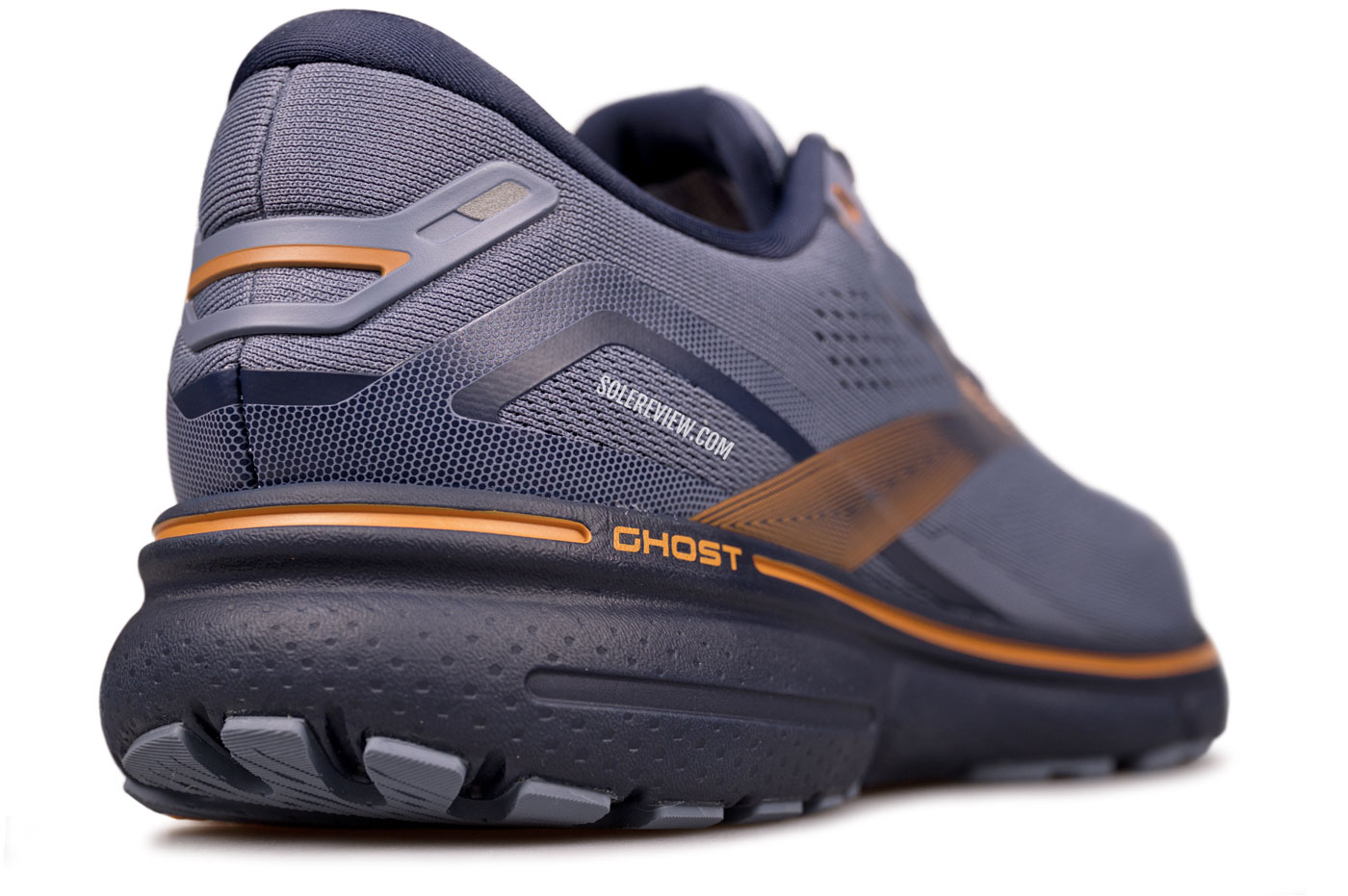
The Ghost 15 sells in a narrow (b) width, but the sizing availability may be restricted in some countries or locations.
However, if you’re located in a country where the full range of widths (including a B) isn’t available, we recommend sticking to the first or fourth category.
The third section has narrow shoes for faster runs – shoes like the New Balance Rebel 3 and Asics Lyteracer 4.
Lastly, we’ve featured a $100 running shoes and under – the Nike Winflo 10.
Here’s a hack if you happen to have small feet – say, a size US 7 or under. It is not a bad idea to get a boy’s model or even women’s running shoes in neutral colors. Buying a boy’s model will get you a narrower fit with 20-30% of price savings over the adult version.
Here are a few examples of boy’s running shoes that also sell in small adult sizes up to a 7Y:
A. The adidas Ultraboost in youth or teen sizes.
B. The Nike Pegasus 40 in kid’s and big kid’s sizes.
C. The New Balance 880V12 in kids and big kids sizes.
1) Best daily trainer in a ‘B’ width: The Brooks Ghost 15
The Brooks Ghost 15 is an everyday neutral trainer that sells in four widths; a narrow ‘B’ size is one of them. However, not all colors are available in a B width – only in a couple of ‘safe’ colors.
So if you want something tighter than the standard ‘D’ width of the Ghost 15, then the B sizing should do perfectly.
As always, the upper uses premium trims and meshes to create a comfortable and secure interior. The tongue still lacks a sleeve, so expect some sideways slide.
The Ghost 15’s midsole is also based on a similar design as the Ghost 14; the DNA Loft V2 (an EVA foam blend) combines distance-friendly cushioning with smooth transitions and stability.
Be it everyday runs or distance cruising, the Ghost 15 can do it all – except for speed runs. Our review gets into the how and why.
2) Best daily trainer in a ‘B’ width: New Balance Fresh Foam 880 V13
Just like the Brooks Ghost 15, the New Balance 880 has always been a safe and somewhat conservative do-it-all neutral trainer.
By ‘conservative’, we refer to its sweet spot of the ride and fit quality that appeals to most runners – regardless of their skill level.
Doesn’t the Fresh Foam X midsole make a difference? Yes, but not by a large margin. The forefoot is a mite softer and smoother due to the re-arranged stack, but the ride quality feels very familiar. The Fresh Foam X midsole feels like an EVA-based foam, so the cushioning delivery is predictable.
The Fresh Foam 880V13’s smooth, engineered-mesh upper is also offered in four widths. So regardless of whether you’re narrow or wide-footed, there’s an optional width available. However, you should know that the 880 V13’s upper doesn’t have a tongue gusset.
Note: The narrow ‘B’ width is available only in select colors.
3) Best stability trainer in a ‘B’ width: Brooks Adrenaline GTS 23
In its standard ‘D’ width, the Brooks Adrenaline GTS 23 doesn’t fit narrow. The interiors have a just-right proportion that will fit most runners.
Having said that, buying the optional ‘B’ width will provide a tighter fit for narrow-footed runners. It must be mentioned that not all colors are offered in a B width; that option is limited to a selected assortment.
The sleeved upper is comfortable as always; the plushly-padded heel and tongue provide a comfortable and secure fit. The spacer mesh has a sponginess that feels soft against the foot.
Powering the cushioning is a firm foam stack with a firmer Guiderail on the arch side. Though the Guiderail design isn’t perfect, the firm midsole is supportive yet cushioned for most runs. A plush removable insole provides a layer of step-in softness.
With its ‘Guiderails’, the Brooks Adrenaline GTS 23 behaves similarly to the GTS 22, a shoe that we reviewed last year.
Also see: The New Balance 860V13 – a traditional stability trainer with a medial post. It’s also available in a narrow ‘B’ width.
4) Best marathon racer for narrow feet: New Balance SC Elite V3
While most super-shoes usually have a snug fit, the New Balance SC Elite V3 has something that the Saucony Endorphin Pro 3 and Nike Vaporfly 3 do not.
The upper midfoot is secured by a pointy toe-box and stretchy midfoot. This makes the SC Elite is a good fit for different foot profiles.
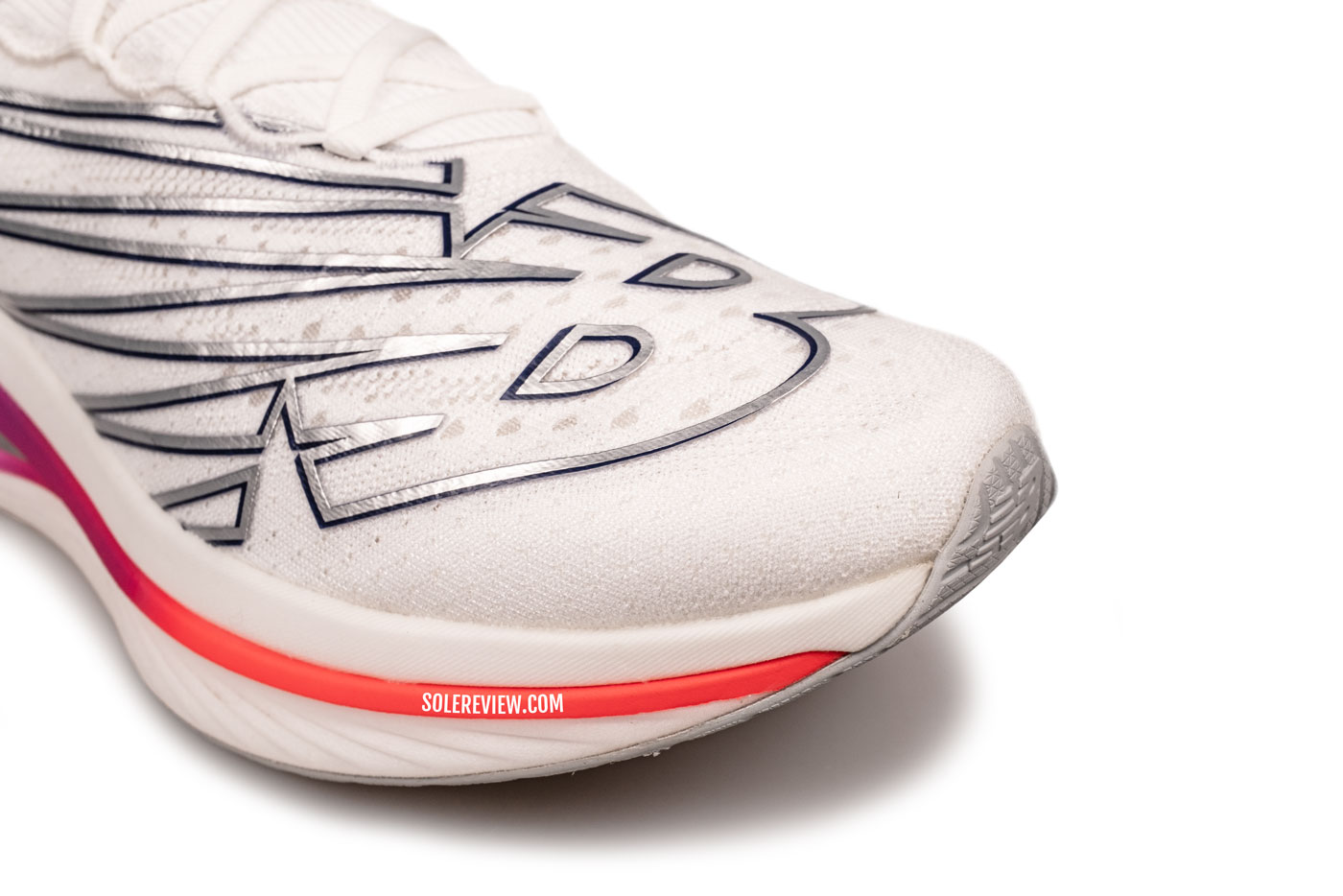
New Balance goes against the prevailing trend, and decides to give the SC Elite 3 a true racer-like upper fit. The good news is, the toe-box isn’t shallow.
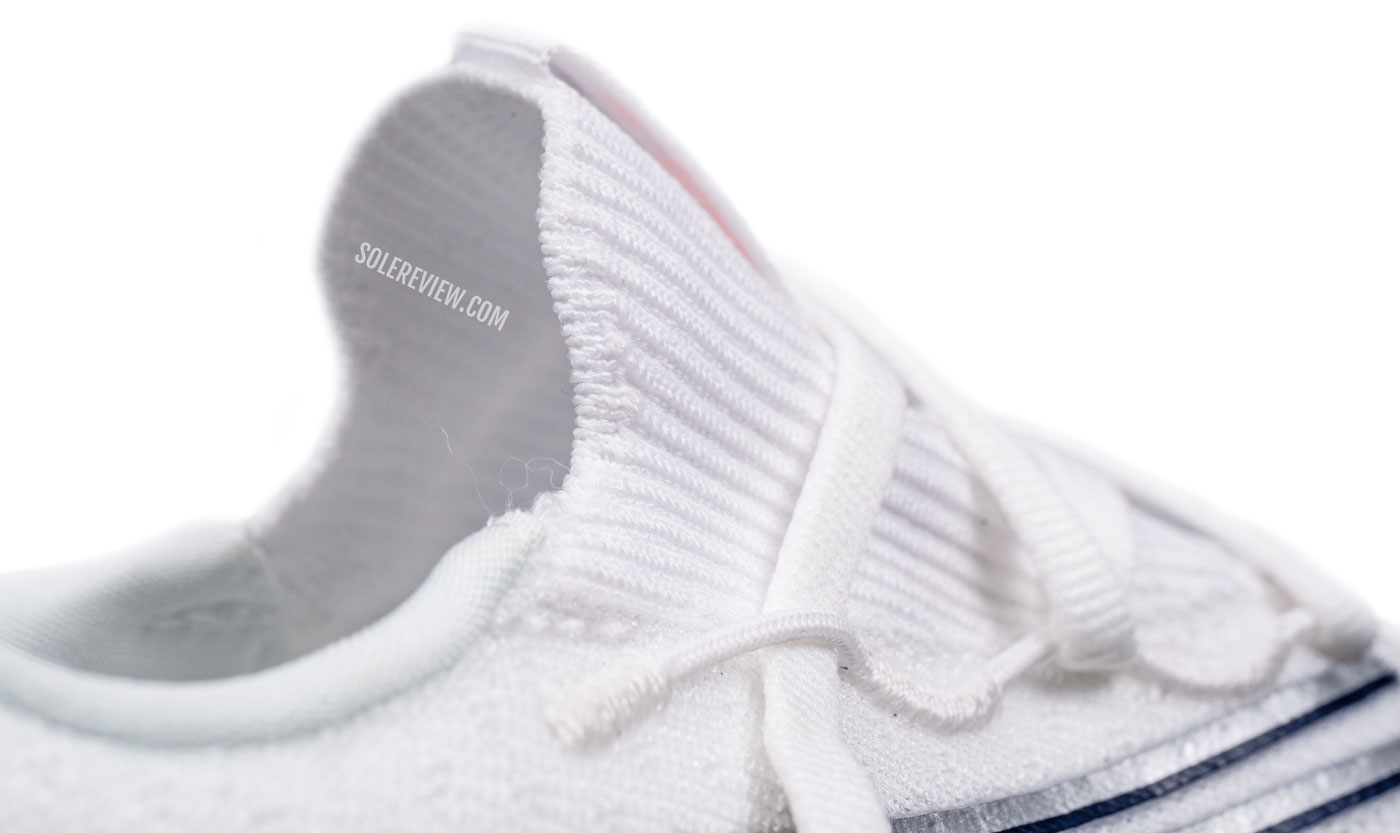
The semi-stretch laces pass through loops that are tacked on. The laces bypass the interiors altogether, so what’s left inside is a smooth midfoot fit.
The tongue is also part of the stretchy midfoot, and provides additional fit security. An internal bumper secures the toe-box fit, and so does the heel. The laces pass unobtrusively through tacked-on loops on the upper, thus making the interiors smooth.
The Elite also behaves differently on the road than the Speed 3 and Pro 3. The deep transition groove delivers excellent straight-line tracking during road runs. In our review, we said that the SC Elite V3 was most fun of the bunch – and that’s true.
From a cushioning standpoint, the Fuelcell foam is not as soft as the Pwrrun PB on the Speed and Pro.
Nonetheless, the foam has excellent rebound and speed-friendly comfort that a marathon racer should have. The internal Carbon plate and high toe spring do the rest; the Supercomp Elite works efficiently through the gait cycle to build up speed.
5) Best marathon shoe for narrow feet: Asics Superblast
We think highly of the Asics Superblast. This is a max-stack, max-cushion shoe – not unlike many of the PEBA + plate super shoes. But there’s one important difference. The Superblast does not have a plate, and is more supportive than marathon shoes like the Nike Vaporfly or Saucony Endorphin Pro/Speed.
That makes the Superblast a much more forgiving shoe for different use cases. It works equally well for everyday runs at easy speeds as it does for tempo training. The midsole combines the lightweight Flytefoam Turbo foam with a firmer Flytefoam Blast base – that way, the ride comfort can co-exist with a transition-friendly character.
At slower speeds, the Superblast is soft and supportive. At higher paces, the rocker shape midsole and responsive foam kicks in.
The Asics Superblast has a similar upper fit as the Novablast 3 – the lower tier version of the Superblast. In practical terms, that means that the forefoot has a snug fit (ideal for narrow feet) with a true-to-size fit.
6) Best long-distance cruiser for narrow feet: Asics Nimbus 25
Our comprehensive review of the Nimbus 25 called out its narrow and warm upper. The change in fit was a significant departure from the relatively easygoing fit of the Nimbus 24.
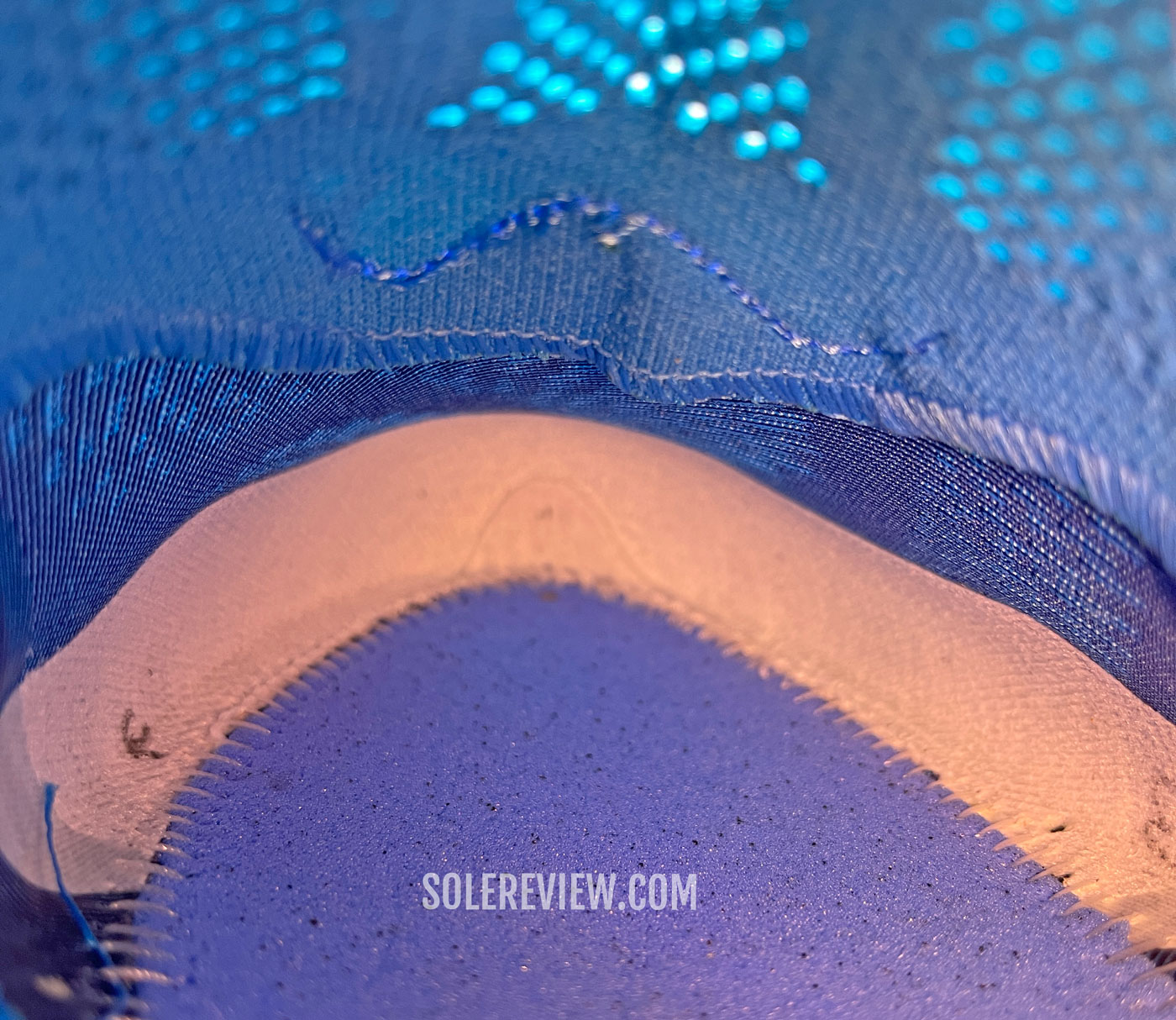
The internal bumper is very long and covers the small toe on the side. The interior traps a lot of heat during runs.
So while the new Nimbus is supremely comfortable for long-distance runs, it’s worth mentioning that the narrow upper traps heat during summer. On the bright side, this is a great distance trainer for the cooler months.
New on the Nimbus 25 is its ultra-cushioned Flytefoam Blast+ midsole in a rocker profile. The deep cushioning keeps the feet comfortable during high-mileage training, whereas the rocker shape assists with the forward transitions.
7) Best long-distance cruiser for narrow feet: Hoka Bondi 8
As a matter of personal opinion, we prefer the Hoka Bondi 7 over the Bondi 8. The upper had more room, and the midsole design was more dialed in.
In contrast, the Hoka Bondi 8 has a narrower fit with firmer midsole zone under the arch. Our review took a detailed look at the Bondi 8 and its changes.
However, this buyer’s guide is about running shoes with a narrow fit, and that’s where the Bondi 8 makes a case for itself. The snug upper is a good fit for narrow-footed runners, while the max-cushion midsole delivers the familiar Hoka comfort.
Just know that the Bondi 8 uses a regular EVA foam midsole, so you won’t get the cushy softness of the Nike Invincible 3 or Asics Nimbus 25. What the Bondi 8 delivers is a cushioned and supportive ride that doesn’t feel slow. While it’s not exactly a shoe for tempo runs, the Hoka won’t bog you down either.
8) Best tempo trainer for narrow feet: New Balance Rebel 3
The New Balance Rebel 3 being a tempo trainer and all, the snug fit comes with the territory.
A secure fit is necessary to keep the foot locked in during threshold runs, so that makes the Rebel 3 a good fit for narrow feet.
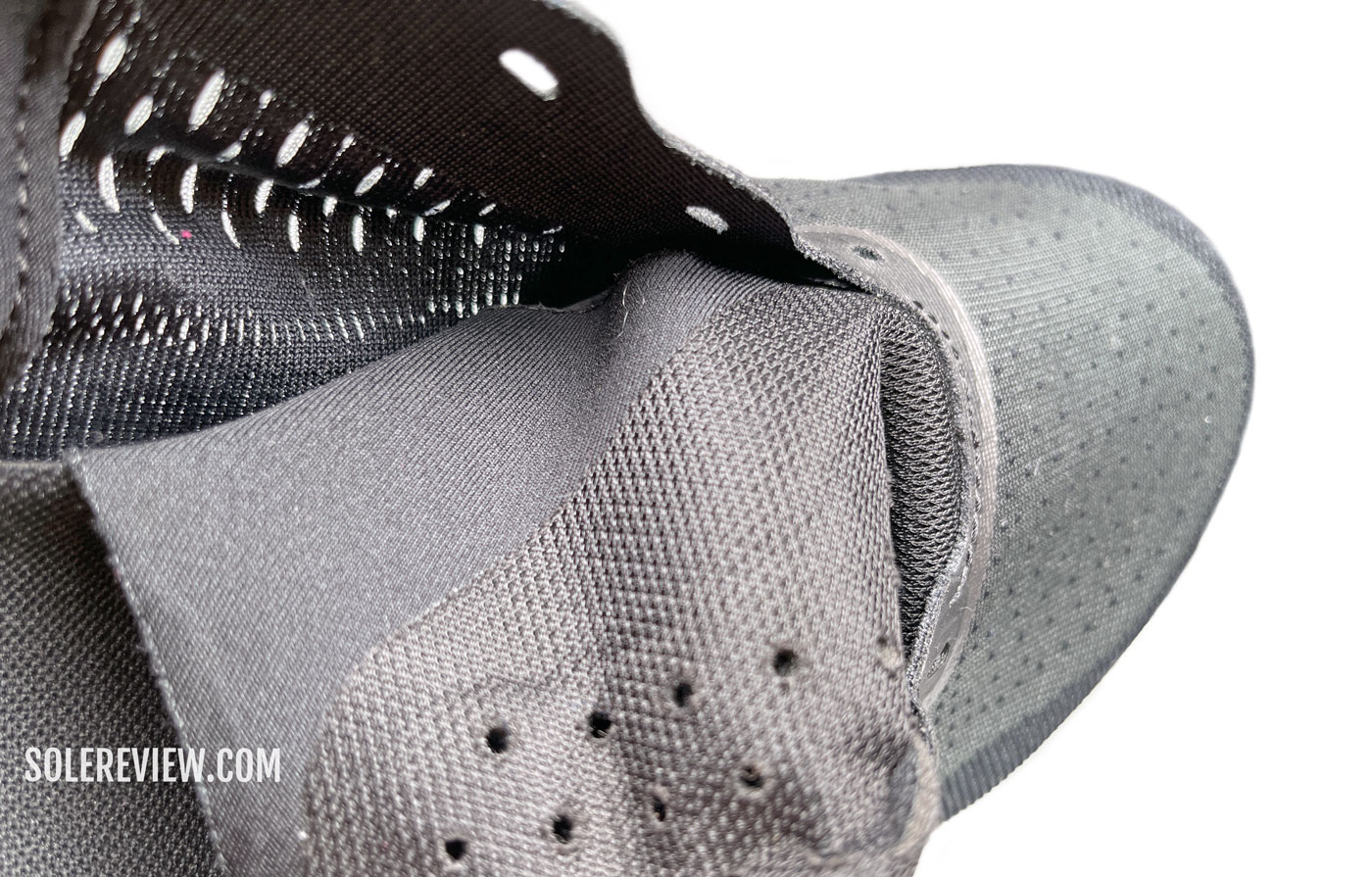
This time, the Fuelcell Rebel gets an inner sleeve. That makes the fit (more) conforming than before.
When we say narrow, the fit isn’t overbearingly tight, but rather an upper that feels optimally secure. The mesh exterior is lightweight and breathable, so the interior never becomes uncomfortably warm.
If you’re unfamiliar with the Rebel 3, the star ingredient of this shoe is the soft and responsive Fuelcell midsole. This is the same foam that’s used on premium New Balance super shoes like the SC Elite, but it’s deployed here in a low-profile form factor.
While the 7.4-ounce Rebel 3 is an excellent shoe for 10K races and tempo/threshold training, the lightweight build lacks the durability requirements for a daily beater. Here’s our in-depth review of the Rebel V3.
9) Best 5K racer for narrow feet: Asics Lyteracer 4
If you’re looking for an ultra-narrow fit, the Asics Lyteracer 4’s upper is an excellent place to find it.
Most road racers fit very tight, as the upper needs to keep the foot locked in for an efficient power transfer to the midsole. However, the Lyteracer’s fit is noticeably narrow due to three reasons.
Besides the narrow last, the non-elastic mesh and high-density printing also make the fit tight. On a racer, this is a good thing – most speed-focused shoes have little to no extra room inside. Football and other field shoes are other good examples.
The Lyteracer’s cushioning delivery is atypical of racing flats.
The thin Flytefoam midsole and non-removable insole provide just the bare minimum cushioning for 5K races, but nothing more. This allows the midsole to provide excellent ground feedback as well as the ‘touch-and-go’ behavior that works so well during fast (4:00 min/km, 6:30 min/mile and quicker) runs.
10) Best trail runner for narrow feet: Saucony Peregrine 13
Trail running shoes usually have a Goldilocks fit – which is not too loose, nor too narrow. However, the Saucony Peregrine 13 is an exception – its upper fits narrower than most trail runners.
There’s a good reason why the Peregrine fits that way. Unlike most trail shoes, the Peregrine has a low-to-the-ground (4 mm drop) and firm ride for speed work.
Still, it’s fairly comfortable for most trail days – thanks to its EVA foam midsole and thick Pwrrun+ insole. The Peregrine 13’s ride is very similar to the Peregrine 12, a shoe that we reviewed on this site.
Like any running shoe that’s designed for fast runs, the upper needs a narrow fit to secure the foot. And that’s what the Peregrine does; the upper locks the foot on the trail. The synthetic layering on the forefoot and toe-box also adds support.
Also see: The adidas Speed Terrex Ultra – it’s a speed-oriented trail shoe with a snug fit and comfortable ride.
11) Nike Winflo 10
Nike’s budget running shoes usually have narrow interiors. That’s true for the Zoom Winflo 10 as well. It also sells in an extra-wide, but that’s a topic for another buyer’s guide.
The non-stretch upper, strap-based lacing, and internal toe-bumper make the interiors suitable for narrow feet.
Besides the fit, the Winflo 10’s full-length Air bag makes it an excellent and versatile daily trainer – think of it as a watered-down Nike Pegasus, if you will.
The Winflo 10 shares the same sole with the Winflo 9 and fit similarly, so it doesn’t make much difference which version you buy.
Do you own any of these shoes? Improve this review by sharing your insights – submit a review here.

